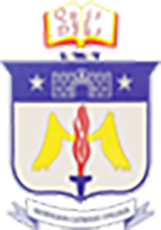International Baccalaureate
The International Baccalaureate Organization aims to develop inquiring, knowledgeable and caring young people who help to create a better and more peaceful world through intercultural understanding and respect.

To this end the IBO works with schools, governments and international organizations to develop challenging programmes of international education and rigorous assessment.
These programmes encourage students across the world to become active, compassionate and lifelong learners who understand that other people, with their differences, can also be right.
This rigorous and academically demanding program is designed for highly motivated university-bound students. Students must take two languages, a social science, an experimental science, a math and an art or option (please see hexagon diagram on the following page). In addition, students must engage in Theory of Knowledge, complete a CAS (creativity, activity and service) portfolio and an extended essay. Upon successful completion of this program, students receive a diploma, which is recognized by many Canadian and international universities.
Considered by many to be unequalled university preparation, the IB allows students to develop into hard working, self-directed learners with good research, study and writing skills. Depending on their degree of success, students may receive university transfer credits and, in some cases, they may qualify for second-year standing. Students work towards the diploma program in grades eleven and twelve. However, some grade twelve courses may be taken in grade eleven and vice-versa.
The website for the International Baccalaureate Organization is available in English, French and Spanish. It contains information on the IB programs and university IB policies. It is available at www.ibo.org. You can also visit www.nccschool.org under International Baccalaureate for more information.
These programmes encourage students across the world to become active, compassionate and lifelong learners who understand that other people, with their differences, can also be right.
This rigorous and academically demanding program is designed for highly motivated university-bound students. Students must take two languages, a social science, an experimental science, a math and an art or option (please see hexagon diagram on the following page). In addition, students must engage in Theory of Knowledge, complete a CAS (creativity, activity and service) portfolio and an extended essay. Upon successful completion of this program, students receive a diploma, which is recognized by many Canadian and international universities.
Considered by many to be unequalled university preparation, the IB allows students to develop into hard working, self-directed learners with good research, study and writing skills. Depending on their degree of success, students may receive university transfer credits and, in some cases, they may qualify for second-year standing. Students work towards the diploma program in grades eleven and twelve. However, some grade twelve courses may be taken in grade eleven and vice-versa.
The website for the International Baccalaureate Organization is available in English, French and Spanish. It contains information on the IB programs and university IB policies. It is available at www.ibo.org. You can also visit www.nccschool.org under International Baccalaureate for more information.
The Website for the International Baccalaureate Schools of Ontario contains, among other things, a list of member schools, and information on extended essays. It is available at www.ibschoolsofontario.ca.
For further information, please contact the school.
For further information, please contact the school.
